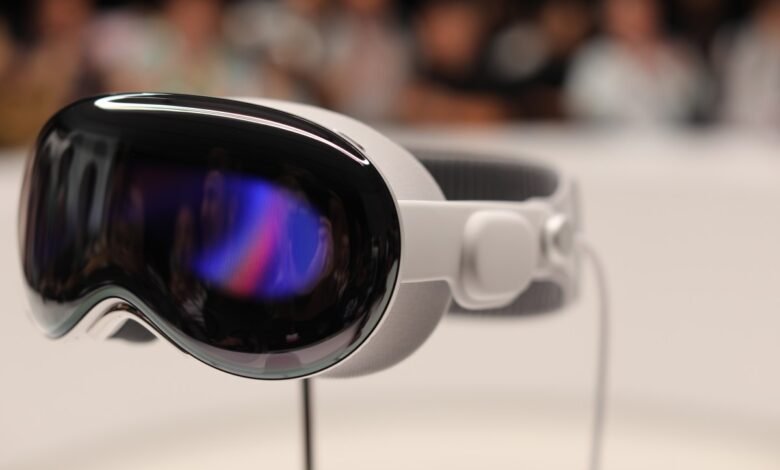Apple Pauses Vision Pro for AI Glasses Push

▼ Summary
– Apple is shifting focus from developing a cheaper Vision Pro VR headset to prioritize AI smart glasses that can compete with Meta.
– The company is reassigning staff from the Vision Pro project to work on the new smart glasses initiative.
– Apple is developing two smart glasses models, with the first model (N50) pairing with an iPhone and lacking its own display, planned for a 2027 release.
– The second model will include a display and directly compete with Meta’s Ray-Ban Display, with Apple accelerating its development timeline.
– Despite this strategic shift, Apple trails behind Meta, which launched its first smart glasses in 2021.
A significant strategic shift is underway at Apple, with the company reportedly redirecting resources from its Vision Pro VR headset project to accelerate the development of AI-powered smart glasses. According to a new report, the tech giant is pausing plans for a more affordable and lightweight version of the Vision Pro, moving staff from that initiative to focus on creating wearable technology that can directly compete with offerings from Meta.
The company is said to be developing at least two distinct models of smart glasses. The first, internally referred to as N50, is designed to function as an accessory for the iPhone and will not incorporate its own display. Apple is reportedly targeting a product unveiling for these glasses as soon as next year, with a commercial release planned for 2027.
A second, more advanced version is also in the works. This model will feature an integrated display, positioning it as a direct competitor to products like the recently announced Meta Ray-Ban smart glasses. While an initial launch timeline for this display-equipped version was set for 2028, Apple is now believed to be pushing to speed up its development cycle.
This renewed focus on smart glasses highlights the intensifying competition in the wearable AI space. Despite this aggressive internal push, Apple currently finds itself playing catch-up to Meta, a company that first entered the smart glasses market back in 2021.
(Source: TechCrunch)





